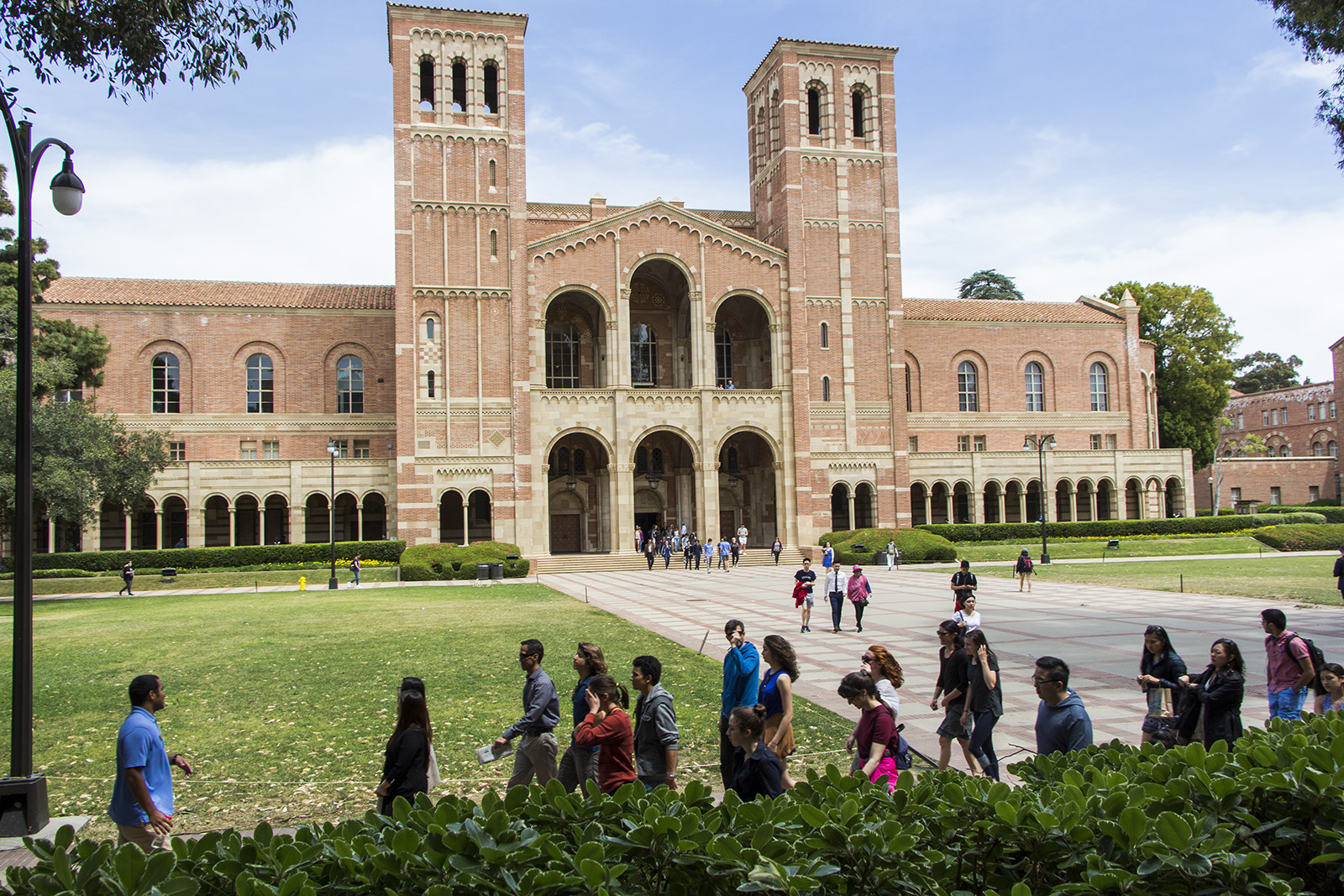Criteria for UCLA’s top university rank may rely on exclusionary factors

(Erin Gong/Daily Bruin)
By Dina Stumpf
Sept. 17, 2017 11:57 p.m.
Several students said that while they appreciate UCLA’s improvement in college rankings this year, they are skeptical of the rankings’ criteria.
Times Higher Education recognized UCLA as the best public university in the nation earlier this month, while UCLA tied with UC Berkeley on Monday for the No.1 spot in the 2018 U.S. News & World Report’s list of the nation’s top public universities. In addition, U.S. News & World Report ranked five University of California campuses among its top 10 public schools.
Rafi Sands, UC student advisor, said he thinks several factors helped UCLA improve its rankings, including more new student applications and expanded research opportunities. In 2016, more than 100,000 freshman and transfer students applied to UCLA, the highest number of applicants for any national university.
“Our applicant base has become more competitive, so our students tend to be generally more likely to graduate and contribute back to the UC community,” Sands said. “(But) I don’t think you can put (the new rankings) on any particular factor.”
Sands said he thinks it is good UCLA has performed well in college rankings, but added he thinks students should be aware that some rankings rely on factors such as alumni giving, which favors schools with wealthy students.
“(Alumni giving) is problematic because schools that are older with wealthier students incoming will bring a higher alumni (donation),” Sands said.
Sands added he thinks UCLA and UC Berkeley’s support for first-generation and low-income students sets them apart from other universities.
“UCLA (is) graduating more low-income students than these higher (ranked) privates combined,” Sands said. “That’s what makes us a great school.”
Devon Graves, UC student regent-designate, said he thinks the measurements and calculations used to create rankings do not necessarily capture students’ experience and education quality.
Jared Keim, chief of staff in the undergraduate student government Academic Affairs commission, said he thinks the U.S. News & World Report’s rankings place too much value on donations to universities.
Keim added while organizations rank private schools highly because they have large endowments and large alumni donations, he thinks universities with a large amount of donations may not necessarily have a high quality of education.
Divya Sharma, Academic Affairs commissioner of UCLA’s undergraduate student government, said he thinks the university should do more to support underrepresented students regardless of the rankings.
Sharma added he thinks UCLA’s high rankings should not take away focus from students on campus struggling with food and housing insecurity.
Brian McCormick, a second-year business economics student, said he thinks the high rankings can benefit the UC system.
“I’m really happy that California has a strong university system,” McCormick said. “I think (the rankings are) really good because it brings in more people who are looking to be educated in an affordable manner.”

